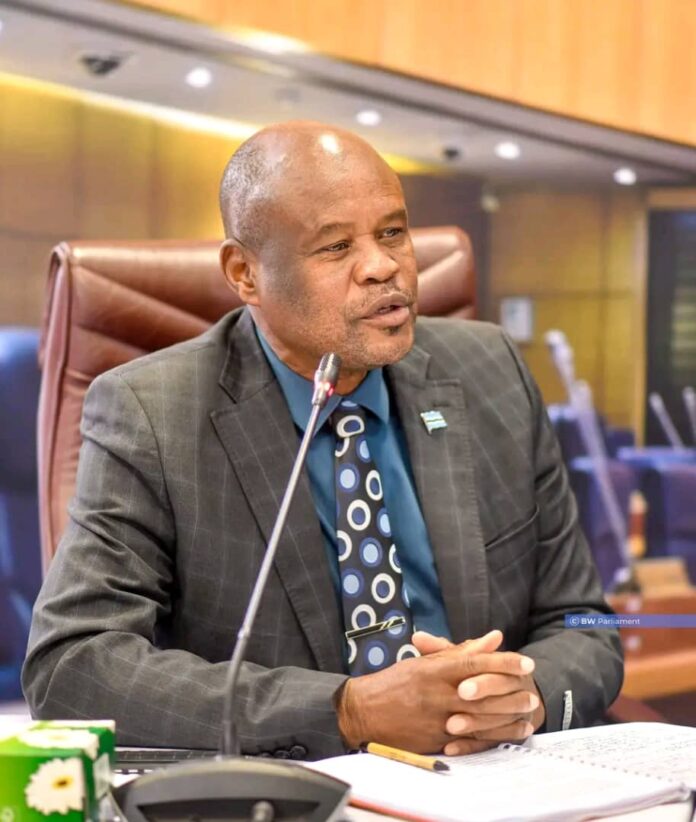The Public Accounts Committee (PAC) plays a crucial role in ensuring that public funds are managed with transparency and accountability. As a standing committee within the country’s Parliament, the 61st PAC plays a vital role in scrutinising government spending and holding those responsible to account. Understanding the function of this committee is essential for every citizen, as it directly impacts how taxpayer money is utilised and whether the government operates with integrity.
To grasp the significance of the PAC, it’s important to first understand the structure of Botswana’s government. The country operates under a unicameral parliamentary system, where legislative power is vested in the Parliament, which consists of the President and the National Assembly. Parliament’s mandate is broad, encompassing the creation and amendment of laws, representing the interests of the populace, and overseeing the actions of the executive branch. Within this framework of oversight, the Public Accounts Committee holds a specific and critical responsibility: the examination of government finances. Parliament achieves its oversight functions through various parliamentary committees, and the PAC is a key component in this system, focusing specifically on financial accountability.
The primary duty of the PAC is to meticulously examine the accounts and financial statements prepared by the Accountant General at the close of each financial year. This scrutiny extends beyond the main government accounts to include those related to Special Funds, ensuring a comprehensive review of public finances. A cornerstone of the PAC’s work is the reports generated by the Auditor General. The Auditor General, mandated by the Public Audit Act, conducts thorough audits of government ministries, local authorities, and selected parastatals, submitting these reports to the Minister of Finance, who then presents them to the National Assembly. The PAC then takes these audit reports into careful consideration during its own examinations. Furthermore, the PAC’s scope of review includes other financial accounts, value-for-money assessments, and performance reports that the Assembly refers to it, indicating its capacity to delve into various aspects of government financial management. Ultimately, the PAC’s core function is to ensure financial scrutiny and accountability within the government. This oversight aims to achieve several crucial objectives: improving the efficiency and effectiveness of the economy and government operations, evaluating the performance of government programs, preventing the executive from overstepping its legislative powers, guarding against poor administration, abuse, waste, and fraud, enhancing the quality of democracy, and ultimately reducing corruption.
To effectively carry out its mandate, the PAC possesses the authority to investigate the use of public funds based on the findings of the Auditor General’s reports and other relevant information. This includes the power to thoroughly scrutinize government policies and programs to understand their financial implications. Crucially, the PAC has the power to “send for papers, persons, and records” and can conduct its work by “moving from place to place,” granting it the necessary tools to gather evidence and information for its inquiries. Additionally, the committee can instruct the Auditor General to conduct further audits or provide clarifications on any matter that requires it, highlighting the collaborative relationship between these two key accountability bodies.
The PAC’s investigations are geared towards holding specific entities accountable for their financial management. This includes government ministries, departments, and agencies, all of which are subject to the committee’s oversight. Ministers themselves can be called upon to account for their actions and the assurances they have given regarding financial matters. Recent activities of the 61st PAC demonstrate the breadth of its scrutiny. The committee has engaged with high-level government bodies such as the Attorney General’s Chambers, the Industrial Court, the Ombudsman , the Ministry for State President , and the Directorate of Intelligence and Security (DIS) , focusing on issues of fiscal transparency and budget management. This work is informed by the Auditor General’s reports, which cover a wide range of public entities, including ministries, local authorities, and selected parastatals. The Public Audit Act provides the legal basis for these audits, ensuring that a broad spectrum of government spending is subject to review.
The 61st Public Accounts Committee is composed of ten private Members of Parliament who are appointed for the duration of the parliamentary term. To ensure a degree of impartiality, the chairperson of the PAC is elected from the opposition party by the Committee of Selection, a common practice in Commonwealth nations. The committee requires the presence of at least half of its members, including the chairperson, to form a quorum and conduct its business.Typically, the PAC convenes its meetings after the National Assembly has adjourned, unless there is an urgent need for oversight. While the committee generally conducts its business in private, this has been a subject of public discussion, with calls for greater openness. The recent trend of live broadcasts of PAC sessions, such as the questioning of the Attorney General’s Chambers and the DIS , suggests a move towards enhanced transparency in the committee’s work.
The PAC’s work culminates in the submission of reports and recommendations to the National Assembly, ensuring that its findings are formally documented and brought to the attention of the broader parliament. The government is generally expected to respond to these recommendations within a specific timeframe, creating a mechanism for follow-up and potential action on the issues raised. The PAC acts as a vital link between the citizens, their elected representatives, and the executive branch, ensuring that financial stewardship is a priority.
Despite its crucial role, the PAC may face challenges. There have been discussions about the need for stronger enforcement powers to ensure that its recommendations are effectively implemented. Adequate resources and technical expertise for both the Auditor General and the PAC are also essential for them to thoroughly analyze complex financial information and conduct effective investigations. A comparative analysis of Public Accounts Committees in Eastern and Southern Africa suggests that while these committees are often active, their effectiveness can be hampered by factors such as political will and limitations in their powers. Continuous efforts to strengthen the PAC’s mandate and provide it with the necessary support are vital for enhancing its impact.
The 61st Public Accounts Committee stands as a cornerstone of financial accountability and good governance within Botswana’s parliamentary system. With its mandate to oversee public finances, investigate potential mismanagement, and hold government entities accountable, the PAC plays a critical role in ensuring that the taxes paid by the citizens of Botswana are used effectively and transparently. Its work, often conducted with increasing public visibility, reinforces the principles of accountability that are fundamental to a healthy and thriving democracy.



